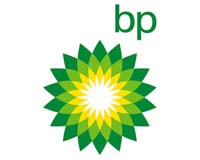 |
Washington (AFP) Sept 30, 2010 US authorities announced new safety rules Thursday for offshore oil and gas drilling, a move aimed at preventing a recurrence of the disastrous Deepwater Horizon accident earlier this year. The Interior Department said two new rules will toughen requirements for safety equipment, well control systems, and blowout prevention practices on offshore oil and gas operations; they also seek to address workplace safety by reducing the risk of human error. "These new rules and the aggressive reform agenda we have undertaken are raising the bar for the oil and gas industry's safety and environmental practices on the Outer Continental Shelf," said Interior Secretary Ken Salazar, who announced the rules in a speech at the Woodrow Wilson International Center. "Under these new rules, operators will need to comply with tougher requirements for everything from well design and cementing practices to blowout preventers and employee training. They will also need to develop comprehensive plans to manage risks and hazards at every step of the drilling process, so as to reduce the risk of human error." One new rule addresses cementing and casing practices and the appropriate use of drilling fluids in order to maintain well bore integrity, the first line of defense against a blowout. The "blowout preventer," the device that failed in the BP well, will need to undergo independent and expert review. The second regulation, known as the Workplace Safety Rule, requires offshore operators to have programs in place to identify potential hazards when they drill and a plan to address those hazards. "These two rules are part of a broader series of reforms we are undertaking to reduce the risks of offshore energy operations," said Michael Bromwich, director of the Bureau of Ocean Energy Management, Regulation and Enforcement (BOEM). "We are substantially raising the standards for all offshore operators, and are doing it in an orderly and responsible way. We will continue to move forward with other changes and reforms in what will remain a dynamic regulatory environment. We owe the public nothing less." Some 205 million gallons of oil flowed into the Gulf after the April 20 explosion aboard the BP-leased Deepwater Horizon oil rig, impacting the crucial fishing and tourism industries and destroying hundreds of miles of the region's fragile coastal ecosystems.
Share This Article With Planet Earth
Related Links Powering The World in the 21st Century at Energy-Daily.com
 BP could resume dividend payments next year: new boss
BP could resume dividend payments next year: new bossLondon (AFP) Sept 30, 2010 BP could resume dividends to shareholders next year, incoming chief executive Bob Dudley said on Thursday, three months after payments were suspended following the Gulf of Mexico oil spill. Dudley told the BBC that after the restructuring of the firm forced by the disaster - which could ultimately cost it 32.2 billion dollars (23.6 billion euros) - BP was now "slimmer, wiser, stronger." ... read more |
|
| The content herein, unless otherwise known to be public domain, are Copyright 1995-2010 - SpaceDaily. AFP and UPI Wire Stories are copyright Agence France-Presse and United Press International. ESA Portal Reports are copyright European Space Agency. All NASA sourced material is public domain. Additional copyrights may apply in whole or part to other bona fide parties. Advertising does not imply endorsement,agreement or approval of any opinions, statements or information provided by SpaceDaily on any Web page published or hosted by SpaceDaily. Privacy Statement |